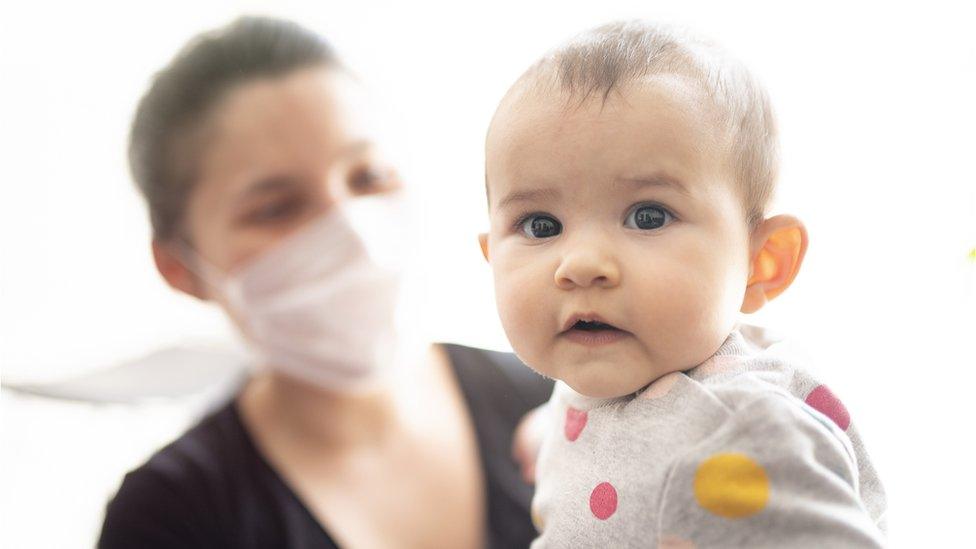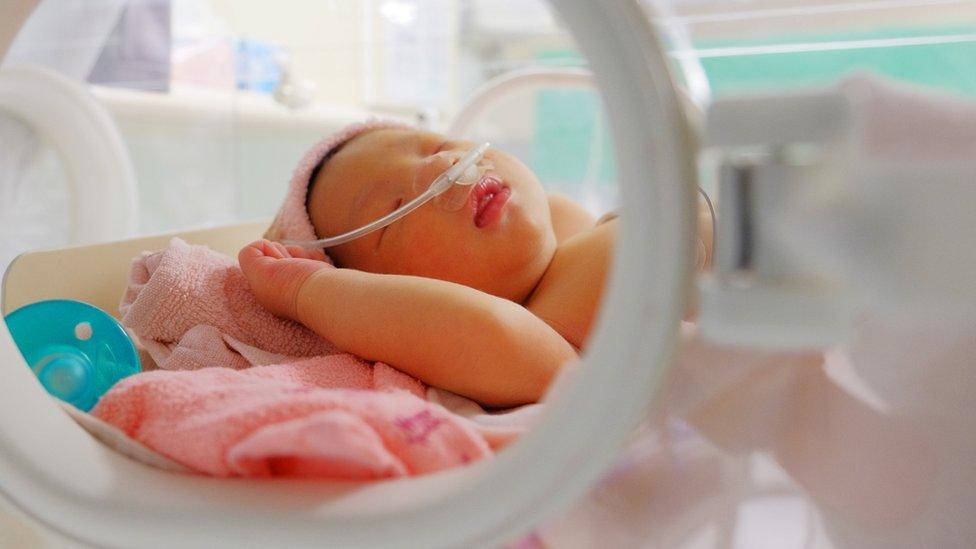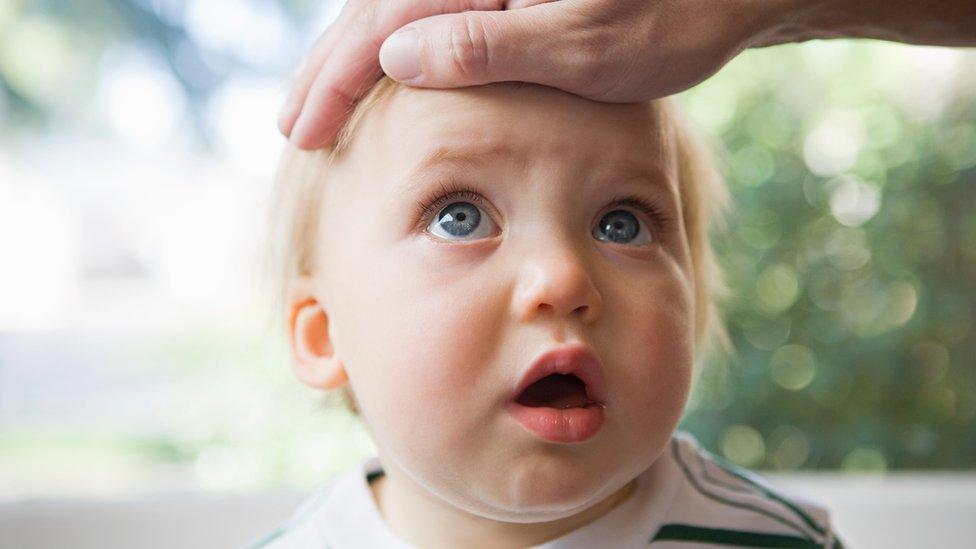Whooping cough: Vaccine call for pregnant women as cases rise
- Published

Vaccines are offered to all pregnant women in England to protect them and their babies
A rise in whooping cough cases has prompted a call for pregnant women and young children to be vaccinated.
There were 24 suspected cases in South Yorkshire in the week ending 21 April, government figures show, following "a steady decline" in vaccine uptake.
Babies are particularly vulnerable to the infection, with five dying between January and March in England this year.
Professor Sir Andrew Pollard, head of the UK's vaccine committee, said he was "very worried" by the surge in cases.
More than 2,700 cases have been reported across England so far in 2024 - more than three times the total number for 2023.
Whooping cough, also known as pertussis, is a highly contagious bacterial infection that mainly affects the lungs and airways.
Initial symptoms are similar to those of a common cold, including a runny nose and a mild fever.
After about two weeks, the characteristic cough develops - often leading to uncontrolled bouts of intense coughing that can last for several minutes and often lead to patients making a distinctive "whooping" sound as they gasp for breath between coughing fits.
"Babies under three months old who are not fully protected through immunisation are at the highest risk of developing severe complications including pauses in breathing (apnoea), dehydration, pneumonia, or seizures," the NHS said.
Of the 24 suspected cases in South Yorkshire, 21 of them were in Sheffield, one in Barnsley and two in Rotherham.
"The current increase in whooping cough cases is being seen across the UK, sadly with a small number of deaths in infants," said Dr David Crichton, medical officer from NHS South Yorkshire.
The deaths come at a time "when there has been a steady decline in uptake of the vaccine in pregnant women and in children," he said.
Dr Crichton stressed vaccination "remains the best defence", adding it was "vital" pregnant women and young infants "receive their vaccines at the right time".
"Pregnant women are offered a whooping cough vaccine in every pregnancy, ideally between 20 and 32 weeks," he said.
"This passes protection to their baby in the womb so that they are protected from birth, in the first months of their life when they are most vulnerable and before they can receive their own vaccines."
Additionally the vaccine is offered to all infants at 8, 12 and 16 weeks of age, with a further dose forming part of the pre-school booster jab.

Follow BBC Yorkshire on Facebook, external, X (formerly Twitter), external and Instagram, external. Send your story ideas to yorkslincs.news@bbc.co.uk, external.
Related topics
- Published10 May 2024

- Published9 May 2024
